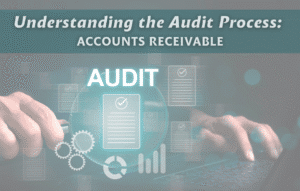Prior to the Tax Cuts and Jobs Act (TCJA) in 2017, generally there was no limit to the amount of state and local taxes (SALT) that an individual taxpayer could deduct on his or her federal income tax return. As a way to raise revenue to offset other tax reductions included in the Bill, the TCJA imposed limitations on the state and local deduction for individual taxpayers ($10,000 for married filing jointly and $5,000 for married filing separately.) This limited deduction for SALT taxes has been a contentious issue, leading some taxpayers in higher-than-average income tax states (think California and New York) to contemplate changing their residency to a state with a lower income tax rate. This SALT limitation is set to expire after 2025, however, during election cycles the issue is often discussed in an effort to push legislators to remove the provision sooner. This cap can have a significant effect on owners of businesses organized as pass-through entities (PTEs).
Impact on Owners of Pass-through Entities
The SALT limitation negatively impacts the individual tax liabilities of PTE owners, since a majority of the state taxes they pay cannot be deducted on their federal tax returns. A PTE’s income is taxable to the owner, personally, and not to the corporate entity itself. As a result, the state taxes the owner pays are generally subject to the $10,000 per year limitation, which includes real property taxes. Conversely, corporations are not limited in this manner and may deduct the state and local taxes paid on their federal corporate income tax returns.
As a way to encourage individuals and business to continue operations in their jurisdictions, many states searched for ways to work around the limitation. One work-around is a pass-through entity tax election. A PTE tax election seeks to correct the imbalance between corporations and flow-through businesses by allowing the PTE to pay and deduct income taxes due on behalf of the company’s owners. In effect, this election resolves the $10,000 limitation issue by deducting the SALT taxes paid before they make their way to the individual owners. The PTE owners may also receive a corresponding credit to offset their state tax due when filing their individual state tax returns.
Connecticut was the first state to create such a program, and many states have followed their lead. In response to these programs, in late 2020, the IRS issued Notice 2020-75, which approved state PTE elections as permissible and has fueled the spread of states adopting PTE programs. According to the AICPA, as of January 17, 2023, 29 states and one locality have enacted a version of a PTE taxing election with another three states in the process of implementing or voting to implement PTE programs. Pennsylvania does not currently have a PTE election option in place.
PTE Considerations
At first glance, PTE elections can seem like a straightforward means to increase an individual’s SALT deduction. However, there are pros and cons a taxpayer should weigh before making these elections. One important consideration individuals should keep in mind and research further before making a PTE election is how the election will affect their state tax credits. Many states allow taxpayers to claim a credit on their resident state tax returns for the amount of taxes paid on the same income in another state. This credit prevents a taxpayer from being taxed twice by states on the same dollar of income.
Another point to remember is that PTE election rules vary from state-to-state and easily become very complex. Many states require a PTE to make a special election, which may have its own intricacies and administrative requirements, before permitting the PTE to participate in the program. Certain states may exclude a PTE from eligibility based on the types of the taxpayers within the ownership group. There can also be differences between states regarding how payments are made. If the PTE misses any steps or makes a late payment, it may invalidate the election. Because of these complications, it may be worthwhile for the PTE to consult a tax advisor who is familiar with the PTE election requirements for the specific state.
Pennsylvania PTE Landscape
In Pennsylvania, there is currently no option for a pass-through entity to pay tax. However, House Bill 1709 would allow a PTE tax election if it is enacted. The legislation was discussed throughout 2022, but never passed into law. Many industry organizations, including the Pennsylvania Institute of Public Accountants (PICPA), are in full support of the PTE program and hope for resolution of this issue soon. Since the SALT cap sunsets after 2025, a PTE election option in Pennsylvania would only be relevant for a short period of time.
Though the PTE tax structure is not yet in place in Pennsylvania, the State’s Department of Revenue has provided guidance regarding whether a PTE tax election qualifies for a resident state tax credit. The details of these stipulations are beyond the scope of this article, but it is significant to note that certain types of businesses making this election may not qualify for resident Pennsylvania tax credits at this point in time. This is a very important consideration because taxpayers who opt for a PTE election in another state may ultimately end up paying more in combined federal and state income taxes with the election than without it, due to the loss of this state tax credit.
Concluding Thoughts
Though the SALT cap and PTE election work-arounds in some states have been in place for several years, the issue has returned to the forefront for Pennsylvania PTEs as the election option moves closer to potential enactment. We will continue to monitor the legislative progress and post updates as available. For guidance and assistance with PTE tax or any other tax concern, please reach out to Grossman Yanak & Ford LLP at 412-338-9300.








